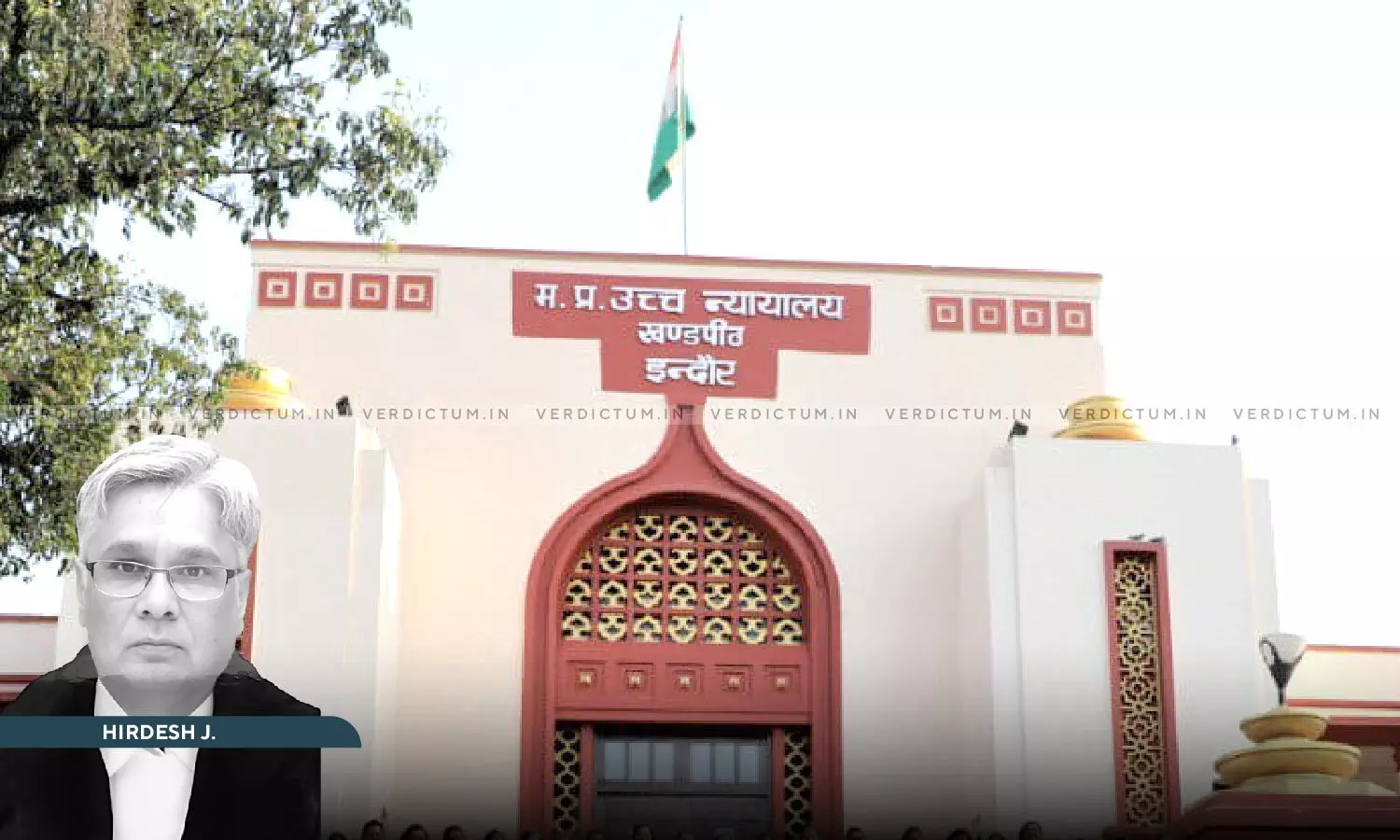
Compelling Husband To Mop, Clean Or Wash Clothes Cannot Be Abetment: Madhya Pradesh HC Discharges Wife Accused Of Abetting Husband's Suicide
 |
|The Madhya Pradesh High Court discharged a woman accused of abetting husband's suicide while observing that not preparing food on time, compelling the husband to do household chores, dancing at her brother's wedding, and going to the market for shopping cannot be considered abetment.
The Court was hearing a Criminal Revision under Section 397 read with Section 401 of the Code of Criminal Procedure, 1973 after the Petitioner was aggrieved by the order passed by the First Additional Sessions Judge, who framed the charge against the petitioner under Section 306 of Indian Penal Code, 1860.
The bench of Justice Hirdesh observed, “Not preparing the food in time, compelling the husband to do the work of mopping, cleaning as well as washing clothes, dancing in the marriage of her own brother, compelling the deceased to immediately go back to their place of resident i.e. Pali Project and going to the market along with other persons for shopping purposes, cannot be said to be an abetment.”
Advocate Anurag Baijal appeared for the Appellant and Advocate Mehul Shukla appeared for the Respondent.
Brief Facts-
The Petitioner and the deceased were husband and wife and they had a daughter. There were allegations against the petitioner that she harassed her husband over household chores because of which her husband committed suicide by hanging himself. An FIR was filed against the petitioner under Section 306 of IPC. She was granted bail by the trial Court. Following an investigation, a chargesheet was filed and charges were framed against her under Section 306 IPC. Aggrieved by the order, the petitioner filed the present Criminal Revision.
The Court mentioned the Supreme Court decision in Gangula Mohan Reddy vs. State of Andhra Pradesh reported in (2010) 1 SCC 750 where according to the Court SC observed, "abetment involves a mental process of instigating a person or intentionally aiding a person in doing of a thing. Without a positive act on the part of accused to instigate or aid in committing suicide, conviction cannot be sustained. In order to convict a person under section 306 IPC, there has to be a clear mens rea to commit offence. It also requires an active act or direct act which leads deceased to commit suicide seeing no option and this act must have been intended to push deceased into such a position that he commits suicide. Also, reiterated, if it appears to Court that a victim committing suicide was hypersensitive to ordinary petulance, discord and differences in domestic life quite common to society to which victim belonged and such petulance, discord and differences were not expected to induce a similarly circumstances individual in a given society to commit suicide, conscience of Court should not be satisfied for basing a finding that accused charged of abetting suicide should be found guilty. Herein, deceased was undoubtedly hypersensitive to ordinary petulance, discord circumstances of case, none of the ingredients of offence under Section 306 made out. Hence, appellant's conviction, held unsustainable.”
The Court observed, “In cases of abetment of suicide, there must be proof of direct or indirect acts or incitement of commission of suicide. Acts involve multifaceted and complex attributes of human behaviour and reactions or in the cases of abetment, Court must look for cogent and convincing proof of acts of incitement of commission of suicide.”
“Instigation means to goad, urge forward, provoke, incite, urge or encourage to do an act.”, the Court added.
Accordingly, the Court said that no case was made out warranting prosecution of the Petitioner and set aside the order of the lower Court while discharging her from the aforesaid charge.
Finally, the Court allowed the Criminal Revision.
Cause Title: Sangita v. State of Madhya Pradesh